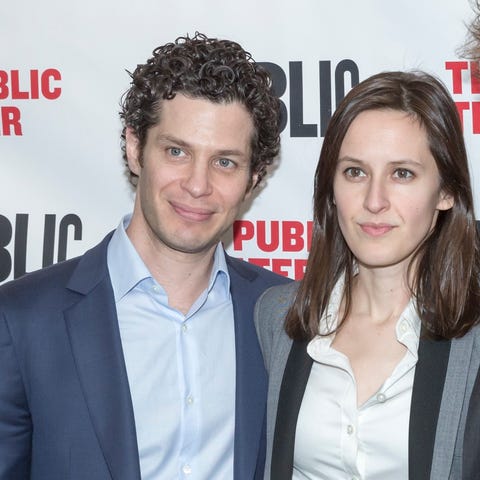How To Make Money In Crusader Kings 2
There are times when it can seem like members of Congress are running the world. But in Kings, a new play by Sarah Burgess opening February 20 at the Public Theater, it's clear that the men and women who make our laws aren't always the ones calling the shots.
The show—directed by Tony winner Thomas Kail—follows two Washington lobbyists (friends, colleagues, exes; you get the idea) played by Aya Cash and Gillian Jacobs as they attempt to maneuver an idealistic new representative from Texas (Eisa Davis) and find that not every decision can be dictated by your politics.
Here, Burgess, who also wrote the 2016 play Dry Powder about the world of high finance, explains why she turned her eye to Washington and how real life proved strange enough to inspire fiction.
Your last show was about the world of private equity. What about Washington and the relationship between lawmakers and lobbyists felt right to you as a subject for this one?
There are two things: one is you know I am from the suburbs of D.C., and my parents were in the military and also worked at different points in the public relations sector, and at one point, my dad briefly worked for a congressman. So, I always felt a connection to D.C. and the people there, and I always had wanted to write about the people there. I tried to write about the Pentagon for a while, but it proved a little difficult.
if there's one thing that we all actually do agree on, it's the relationship between money and politics.
And then, about two years ago, I read something about these fundraising retreats that lawmakers do, there are a lot of firms that take lawmakers out of D.C. to Napa or golf courses in South Carolina, and that just seemed, to be honest, very funny to me. Something about these prominent and successful having to gather together to do these activities under the pretense of fundraising—that was something that stayed with me, and I think that's what put me on to writing about Washington.
I'd heard you're working on a trilogy. Is that the case?
I just feel like right now I find myself writing about money and the system that it creates in professional lives, and how that really can sort of divide us. I like to find a comedy in that—and so, yes, I think there is something to a third play. I got excited with Dry Powder, about two people who work for private equity firms and see themselves very differently even though they do the same thing, and I'm also very excited about lobbyists and the vitriol that's directed at them. There's something in that that just naturally compels me, but it does feel like there's a third thing there.

Simon Luethi
Washing, D.C. is such a specific place, and the world that you're creating relies so much on certain insider knowledge. What sort of research, other than you growing up there, did you do to get these signifiers of power, class, and money down?
I did a lot of reading. There's a place where you can look at the actual invitations [for fundraisers], and I thought that was inspiring, to see how the money changing hands works. There was one lobbyist who was quite helpful, and who was direct with me about details that like phrasing—things that anyone who's a professional knows.
There are lines in the play that reference voters making bad choices, but those can be funny to anyone depending on what comes to mind. Did the recent presidential election influence your work at all?
I started the play before the presidential election in 2016. But what's funny is that this play is about something that both sides of the aisle agree on—depending on how you phrase the question. I've of course been thinking a lot about presidential politics, and the direct effects on the election, but for the play, if there's one thing that we all actually do agree on, it's the relationship between money and politics. That was something that held true before Trump was president, and sort of holds true now.
What's your actual writing process? Do you just put pen to paper and end up with a play?
I get excited by something that comes into my view, like the retreats, and that can suggest a character's voice to me and I might just start writing dialogue. This show started with a lobbyist named Kate, and a new Congressman, and the exchange between them, so I did reading on how new members of Congress have to spend so much time on fundraising and about fundraising retreats and that sparked a thought about the dialogue for me. It really starts with those two voices.
There's a wealth of great stories about Washington—from The Parisian Woman, on Broadway now, to series like House of Cards or movies like The Post—is there anything you think would make a good companion piece to Kings?
I started out wanting to do quick, light comedy, something that might work alongside something by [Veep creator] Armando Iannucci. I was writing a comedy, but then the play became something else.
Adam Rathe Senior Editor, Arts and Culture Adam Rathe is a senior editor at Town & Country, covering arts and culture and a range of other subjects.
This content is created and maintained by a third party, and imported onto this page to help users provide their email addresses. You may be able to find more information about this and similar content at piano.io
How To Make Money In Crusader Kings 2
Source: https://www.townandcountrymag.com/leisure/arts-and-culture/a18209124/sarah-burgess-interview-kings/
Posted by: scottdess1993.blogspot.com

0 Response to "How To Make Money In Crusader Kings 2"
Post a Comment